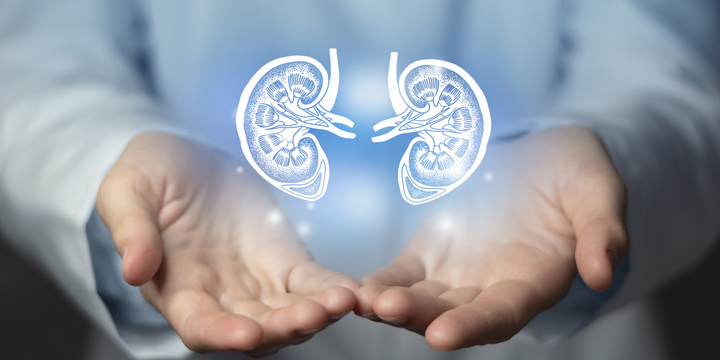
You may be disheartened to see the long list of long-term complications that can develop with diabetes. However, there are two things to remember that should give you hope. Firstly, most long-term complications are avoidable. Secondly, it is easier to manage your diabetes before you run into complications than dealing with them after they develop. This is why it is important for you to learn how to prevent complications or if you already have some, how to reduce the impact.
There are two main types of complications – microvascular (affecting the small blood vessels) and macrovascular (affecting the large blood vessels).
While early detection of these complications can delay progression, early detection of other risk factors such as smoking, high blood pressure, high serum cholesterol and obesity is even more important.
Read on to learn about which complications may arise, how best to avoid them, how to recognize them and if they do develop, how to manage them.
Microvascular complications include:
Eye Damage
Poorly controlled diabetes is the leading cause of blindness. This condition is very preventable, both by maintaining blood sugars at target and by seeing an eye specialist for treatment.

Kidney Damage
Diabetes is the leading cause for end-stage kidney failure. Blood sugars not at target directly harm the kidneys. We can measure if the kidneys are being damaged by doing a blood test (filtration rate) and urine test (ACR).

Nerve Damage
Loss of sensation or actual pain, particularly in the feet, can be a very frustrating and bothersome complication. Although the condition is linked to higher sugars, some individuals can develop this even before their diagnosis of diabetes, or even occasionally with sugars at target. Combined with poor circulation, this long-term complication can also lead to amputation.

Macrovascular complications include:
Stroke
Diabetes increases the risk of stroke. You can lower your risk by keeping your blood glucose, blood pressure and cholesterol on target along with healthy eating, physical activity, and, if needed, medications.

Heart Attack
People with diabetes develop heart disease, on average, 15 years earlier than those who aren’t living with the condition. There are several things you can do to reduce your risk of heart attack including following a healthy diet, aiming for a healthy weight, getting active and managing your ABCDE’s.

Circulatory Disease
Hardening of the arteries can happen in other parts of the body other than the heart and the brain. In the legs and feet, it’s called peripheral artery disease or PAD. PAD is often the first sign that a person with diabetes has cardiovascular disease.

Articles about managing diabetes complications
 Can weight loss help with erectile dysfunction management in diabetes?Erectile dysfunction (ED) is a common and often distressing complication of living with diabetes, especially for men with type 2 diabetes.
Can weight loss help with erectile dysfunction management in diabetes?Erectile dysfunction (ED) is a common and often distressing complication of living with diabetes, especially for men with type 2 diabetes. Treating erectile dysfunction (ED) earlyErectile dysfunction (ED) is a common complication for men with diabetes. The good news is that recognizing and treating ED early on can help address symptoms and improve overall vascular health.
Treating erectile dysfunction (ED) earlyErectile dysfunction (ED) is a common complication for men with diabetes. The good news is that recognizing and treating ED early on can help address symptoms and improve overall vascular health. How are diabetes and Parkinson’s disease connected?Living with diabetes is not easy. It puts you at risk for a range of health issues, from eye damage to foot problems and kidney disease. Scientists have learned that having diabetes can also make you more vulnerable to Parkinson’s disease.
How are diabetes and Parkinson’s disease connected?Living with diabetes is not easy. It puts you at risk for a range of health issues, from eye damage to foot problems and kidney disease. Scientists have learned that having diabetes can also make you more vulnerable to Parkinson’s disease. Why the hype about diabetes and hypertension?Hypertension or high blood pressure - what is it? And why is it important to recognize and treat hypertension in people with diabetes?
Why the hype about diabetes and hypertension?Hypertension or high blood pressure - what is it? And why is it important to recognize and treat hypertension in people with diabetes? Diabetes and seasonal allergiesAs the warmer weather returns in spring, so do seasonal allergies (also known as hayfever or seasonal allergic rhinitis).
Diabetes and seasonal allergiesAs the warmer weather returns in spring, so do seasonal allergies (also known as hayfever or seasonal allergic rhinitis). Diabetes and insomniaIf you suffer from diabetes and insomnia, there are a few things that might be causing it. Diabetes and sleep are very closely linked
Diabetes and insomniaIf you suffer from diabetes and insomnia, there are a few things that might be causing it. Diabetes and sleep are very closely linked Diabetes and circulatory problemsBlood circulation is one of the most important functions in the human body. It supplies oxygen to the brain and other organs (e.g. the heart, kidneys, lungs and liver), as well as your arms and legs.
Diabetes and circulatory problemsBlood circulation is one of the most important functions in the human body. It supplies oxygen to the brain and other organs (e.g. the heart, kidneys, lungs and liver), as well as your arms and legs. 7 things you need to know about diabetes and heart healthIf you have diabetes, it’s important to pay attention to your heart health. Heart disease is a common complication of diabetes. In fact, people with diabetes are 3 times more likely to die of heart disease compared to those who don’t have diabetes. The good news is that there are a number of things you can do to reduce your risk.
7 things you need to know about diabetes and heart healthIf you have diabetes, it’s important to pay attention to your heart health. Heart disease is a common complication of diabetes. In fact, people with diabetes are 3 times more likely to die of heart disease compared to those who don’t have diabetes. The good news is that there are a number of things you can do to reduce your risk. Environmental toxins and diabetes: what are the health risks?A number of studies have shown a relationship between environmental toxins and the risk of diabetes. These toxins can occur naturally or through industrial and manufacturing processes.
Environmental toxins and diabetes: what are the health risks?A number of studies have shown a relationship between environmental toxins and the risk of diabetes. These toxins can occur naturally or through industrial and manufacturing processes. Does having diabetes lead to muscle loss?Everyone experiences some muscle loss as they age, but having diabetes can make you more susceptible to muscle loss even at a younger age
Does having diabetes lead to muscle loss?Everyone experiences some muscle loss as they age, but having diabetes can make you more susceptible to muscle loss even at a younger age





